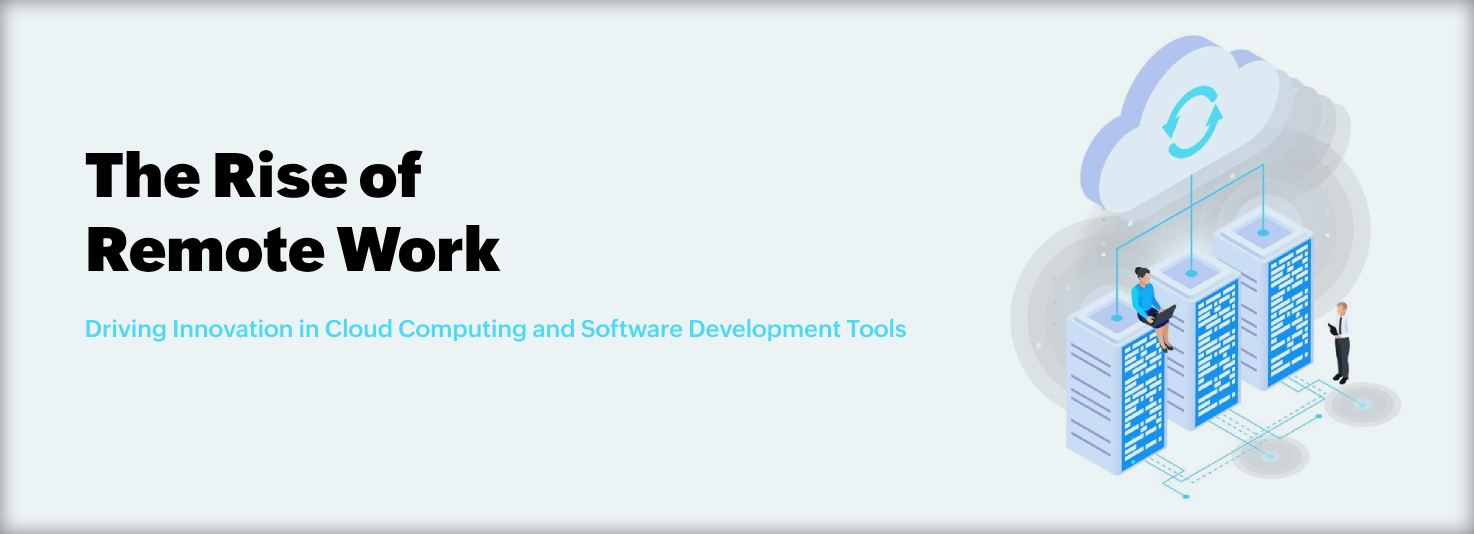The Rise of Remote Work: Driving Innovation in Cloud Computing and Software Development Tools
The rise of remote work has transformed the way businesses operate, leading to a fundamental shift in the way teams collaborate, communicate, and innovate. In this new era of distributed workforces, cloud computing and software development tools have emerged as essential enablers of productivity, agility, and innovation. Here, we explore how the rise of remote work is driving innovation in cloud computing and software development tools.

In a remote work environment, cloud computing plays a pivotal role in facilitating seamless collaboration and communication among distributed teams. Cloud-based collaboration tools, such as Google Workspace, Microsoft 365, and Slack, enable real-time document sharing, video conferencing, and instant messaging, empowering remote teams to collaborate effectively regardless of their physical location. Moreover, cloud infrastructure providers, such as Amazon Web Services (AWS), Microsoft Azure, and Google Cloud Platform (GCP), offer scalable and flexible computing resources that enable businesses to adapt to changing workloads and requirements with ease.
The transition to remote work has accelerated the adoption of agile development methodologies and DevOps practices, which emphasize collaboration, automation, and continuous integration and delivery (CI/CD). Remote teams leverage cloud-based development platforms, such as GitHub, GitLab, and Bitbucket, to manage code repositories, track issues, and automate software deployment pipelines. By embracing agile and DevOps principles, remote development teams can streamline development cycles, increase productivity, and deliver high-quality software solutions faster and more efficiently.
With the rise of remote work, developers require seamless access to development environments, tools, and resources from anywhere in the world. Cloud-based development environments, such as AWS Cloud9, Microsoft Visual Studio Online, and Eclipse Che, provide developers with a unified platform for coding, testing, and debugging applications in the cloud. These platforms offer features such as collaborative editing, remote debugging, and integration with popular programming languages and frameworks, enabling developers to work efficiently and collaboratively regardless of their physical location.
Artificial intelligence (AI) is revolutionizing remote collaboration and productivity tools by automating repetitive tasks, enhancing communication, and improving decision-making processes. AI-powered virtual assistants, such as Microsoft Cortana, Google Assistant, and Amazon Alexa, enable users to schedule meetings, set reminders, and access information using natural language commands. Moreover, AI-driven analytics tools, such as Microsoft Power BI and Google Analytics, provide insights into remote team performance, productivity trends, and project metrics, empowering organizations to optimize their remote work strategies and workflows.
In conclusion, the rise of remote work is driving innovation in cloud computing and software development tools, enabling organizations to embrace flexible work arrangements, foster collaboration, and accelerate digital transformation initiatives. By leveraging cloud-based collaboration platforms, agile development practices, remote access to development environments, and AI-powered productivity tools, businesses can thrive in a distributed work environment and unlock new opportunities for innovation and growth.